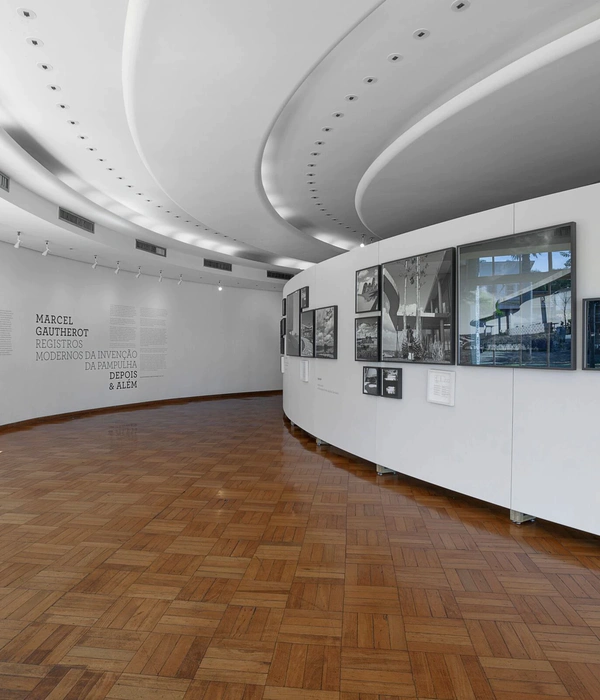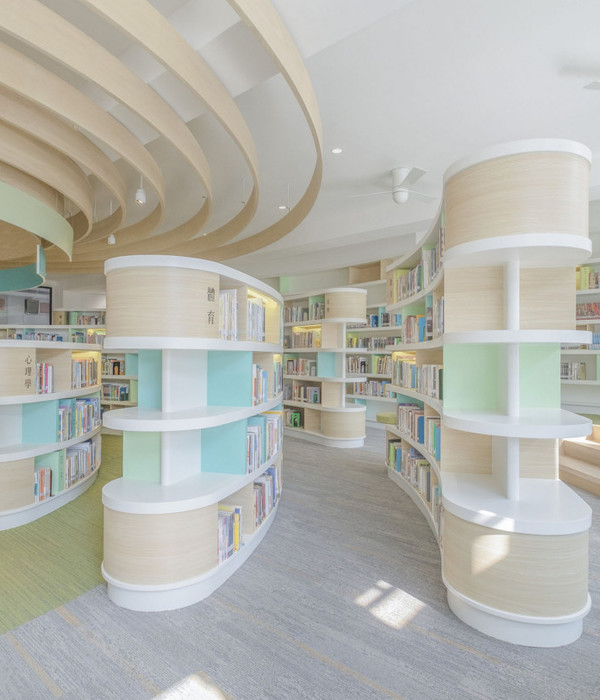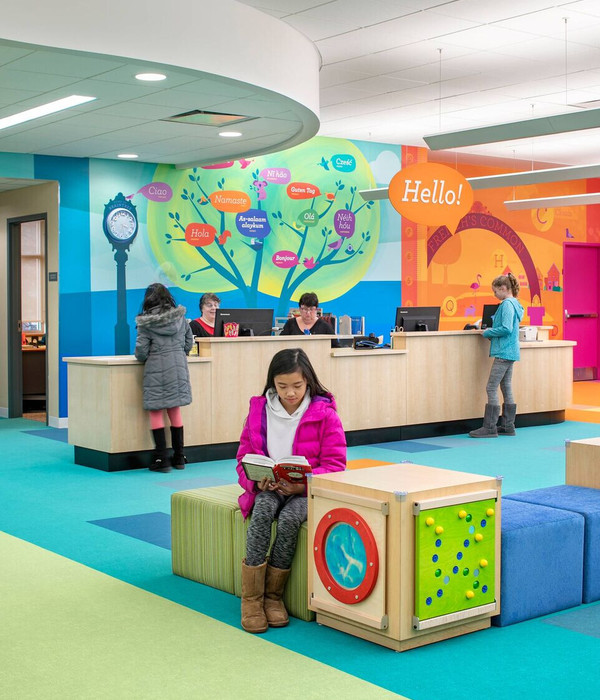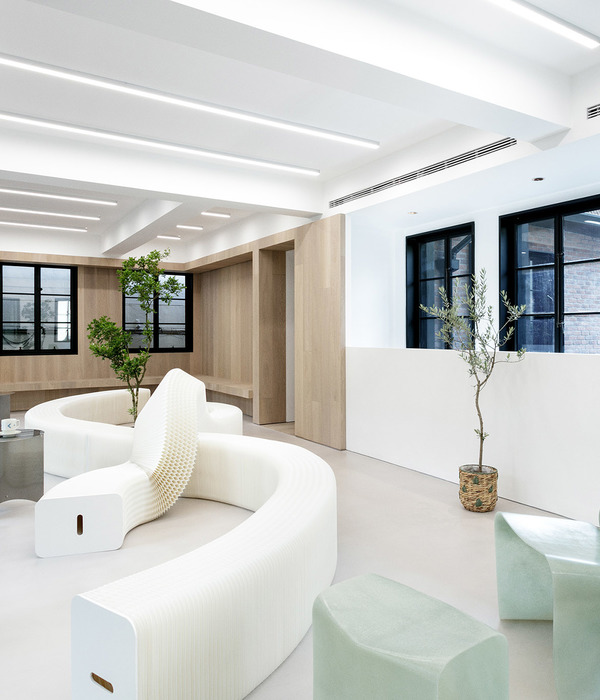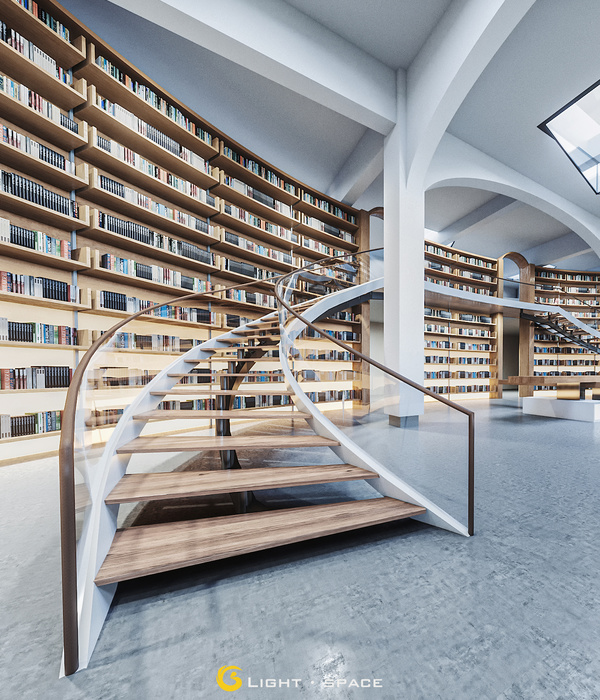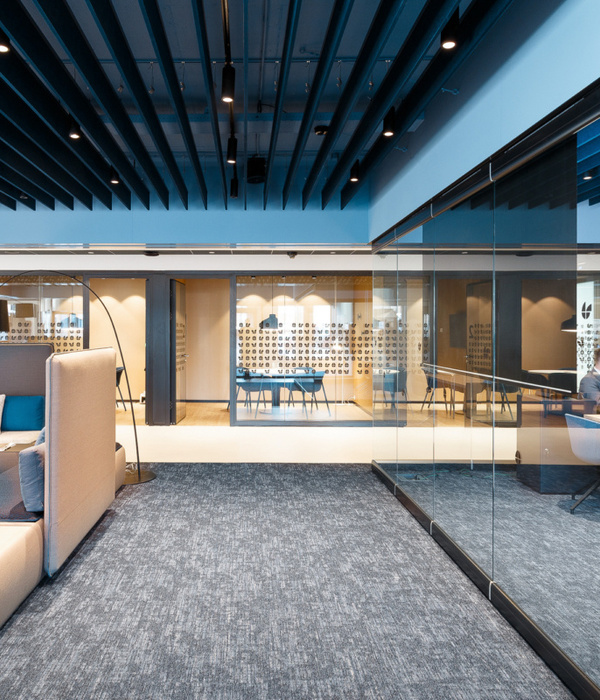非常感谢
Francisco Mangado
。
Appreciation towards
Francisco Mangado
for providing the following description:
The project addresses the whole complex, including the future of the Velarde Palace and the Casa Oviedo-Portal. Only through such a comprehensive approach can the optimal functioning of an institution as important as the Fine Arts Museum of Asturias be guaranteed.
With this idea as starting point, the project contemplates raising an altogether new building within the urban complex. That is, the sequence of existing facades around is taken as a contextual condition, and these facades take on the role of an urban ‘backdrop’, unquestioned, against which to erect a new building with a facade of its own; a facade that reveals itself, is discerned, through naked, totally frameless openings. In the exterior it will be possible to complete a large luminous construction, glazed and full of reflections, that will project outward and superpose itself on urban history, giving the new Fine Arts Museum of Asturias a bold but complex image.
阿斯图里亚斯陷入古老城市复杂的机理中,它以崭新的面目出现,拥有一个与老城市和谐但却裸露开着窗洞和门洞的外表皮,在外表皮之后,是一个闪闪发光的玻璃表皮新建筑,局部不规则的外凸出外面一层老实表皮。在这个古老的城市中彰显出自己大胆复杂的一面。
虽然光对建筑相当重要,但在博物馆中,能够在利用人工照明之外还能利用精美微妙的自然光那将是非常棒!建筑师也朝着能够多利用一点自然光的方向前进,在复杂的展览空间中安插联系他们的中央小天井和过渡室内庭院,用天窗引入自然光。
在这个建筑中,最独特的两个要素就是外表皮的对古老城市的回应,假的老式表皮掩映着新建筑。博物馆用全新但是适度的丰富视觉冲击力回应历史。另外就是博物馆的公共交通楼梯以及各个中庭,这里联系各个区域,被微妙的光线充斥,以微妙的空间开动进行关联,具有堪称伟大的空间品质。
The other fundamental element for explaining the building’s relationships with the context is the inner block courtyard. Through luminous glazed catwalks, the courtyard becomes a place for encounters and an element connecting the various buildings of the museum complex.
A look at the new floor plan throws light on the importance of the courtyards, the voids, in shaping the entire complex. Both the block courtyard – adequately upgraded and incorporated into the organization of the complex – and the covered court of the new main edifice, which acts as a great skylight articulating and structuring access points and circulation elements, becoming a reference space for the entire complex, are key parts of a proposal that conceptually and physically expands the current premises made up of the Velarde Palace and the Casa Oviedo-Portal.
Light is always important in architecture, but more so in a museum. Naturally we’re not referring to the artificial lighting, which of course constitutes a project in itself, but to natural light. Ideally, the presence of natural light is exquisitely subtle. And the project has tried to work toward this ideal through the logic of the voids, whether the block courtyards or the central core, and through the logic of the skylights, which directly affect the higher floors.
There are two unique elements in the new construction. One is the new facade behind the historic one running toward Calle de la Rúa and its corner with Plaza Alfonso II. More than just a facade, this is an element of great formal, visual, and functional intensity. On one hand it will be the museum’s new image, an image always tempered by historical realities. It also shapes the public stairway, which gives access to all the museum levels, and the double- and triple-height entrance spaces; spaces that engage in dialogue with the historical facades in the way they converge with and diverge from them in the interior. The project concentrates the two periods in this thick facade and allows an oblique view of the existing city, from inside, through these facades.
And finally, with the surface of the existing facade ,the new facade with an elaborate glass finish produces a play of crossed reflections inside; an interaction between two facades that creates a space of rich intensity.
Also unique in form are the skylights on the roof, which, being set back from the line of the facade, has little impact on the exterior, but gives great quality to the interior.
site: Santa Ana 1-3, 33003 Oviedo. Asturias, España.
total area: 2.463 m² (under ground floor) + 8679 m² (above ground floor) = 11.142 m²
total cost: 16.800.000 €
year of competition: 2006. First prize competition
year of project: 2007
year of construction: 2009-2014
client: Principado de Asturias – Consejería de Cultura y Turismo.
architect: Francisco Mangado.
work direction: Francisco Mangado
collaborators: architecture Idoia Alonso, Luís Alves, Ricardo Ventura, Sergio Rio Tinto, Abraham Piñate, Hugo Pereira, André Guerreiro, Diogo Lacerda, Justo López García arqs.
structural engineering IDOM.
installations engineering IDOM.
lighting IDOM.
quantity surveyors Luis Pahisssa, Fernando Pahissa, Alberto López Diez, Angel Garcia Garcia.
contractor SEDES S.A.
photographer: Pedro Pegenaute
{{item.text_origin}}



